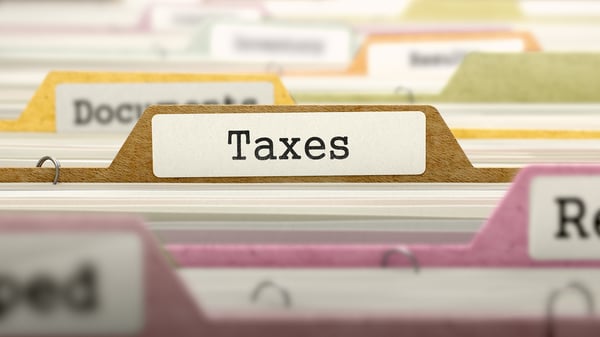It’s often said that the only two things that are certain in life are death and taxes. While investing in real estate won’t help you stave off the reaper, it can help you when the tax man comes around. There are a lot of tax benefits that come with real-estate investment, and some of these benefits can make the difference between losing and making money on a property at the end of the year. We’ll discuss a few of the benefits that you might be missing out on, and some of the things that you can do take advantage of them this tax season.
Income Deductions
According to the IRS: “In most cases, the expenses of renting your property, such as maintenance, insurance, taxes, and interest, can be deducted from your rental income.” The term “expenses” is a broad one here and covers a huge list of items. Consider everything that you might spend money on when renting a property. Some of these expenses will be pretty self-explanatory, such as:
- Advertising
- Auto and travel expenses
- Cleaning and maintenance
- Insurance fees
- Legal or other professional fees
- Management fees
- Repairs
- Utility Fees
This list can be a long one. Don’t neglect other things like the cost of renting equipment, or even renting a property on which you are collecting rent. Some other types of expenses are easy to miss because they’re unusual or a little bit complicated. We’ll talk about them next.
Special Things to Consider
Depreciation is a way for you to recover the cost of putting an income-producing property into service over time. Instead of taking a single large tax deduction in the year that you buy a property, you would take smaller tax deductions each year over the expected life of the property. According to the IRS, you can begin to depreciate rental property when it is ready and available for rent.
Vacant Properties come with some special tax considerations. You can deduct ordinary expenses that are necessary to maintain the property while it is empty, but you cannot deduct any lost rental income.
Interest Expenses can get a little tricky. While you can deduct mortgage interest you pay on a rental property, certain expenses can’t be deducted as interest when you pay them to obtain a mortgage. Think of things such as mortgage commissions, abstract fees, and recording fees.
Finally, Points refers to some of the charges paid by a borrower to take out a loan or a mortgage. You may also hear these called “loan origination fees,” “maximum loan charges,” or “premium charges.” Points can be a really complicated topic, but generally speaking, they count as pre-paid interest, you can't deduct them in full in the year paid, and you must deduct them over the term of the loan. You might find that this is a complex topic, so don’t be afraid to search out additional resources.
What You Can’t Deduct
While there are many things that you can deduct, there are a few things that you cannot. Generally, you won’t be able to deduct charges for local benefits that increase the value of your property. These benefits include things such as charges for putting in streets, sidewalks, or water and sewer systems. You can, however, deduct any local taxes that are earmarked for maintaining, repairing, or paying interest charges for those benefits.
You cannot deduct uncollected rent if you are a cash basis taxpayer, as it’s not included in your income. If you report income when you earn it and are unable to collect the rent, you may be able to deduct it as a business bad debt.
Remember that this list leaves out a lot, and much of this is general advice. Things can change on an annual basis, and it’s always a good idea to consult with an accountant before hitting send or putting that envelope in the mail.
A Property Manager Can Help
If all of the above information seems a little bit overwhelming, you aren’t alone! Handling the complexities that come with tax-season and helping you breathe a little easier is something that a property management company will specialize in doing. Aside from assisting you with marketing and filling your properties and handling the maintenance and administrative tasks that can hog your time on a day-to-day basis, a property management company can bring a lot of accounting and legal expertise to your corner and have you maximizing your end of the year tax return.
A good property manager will come to you well versed in tax procedures and law. They can identify what deductions you can take and help you earn every cent that you can from your properties at the end of the year. How can you put these skills to work for you? Download our free guide to selecting the best San Diego area property management company to find out. Enter your name and an email address, and you’ll find a wealth of knowledge at your fingertips.





